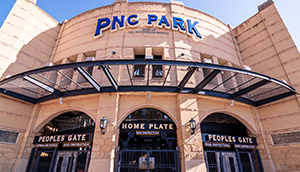 You’re bidding on a new project, and the surety company says you need to increase your bank line of credit. Why, you may ask, do I need so much credit when I’ve never used it before?
You’re bidding on a new project, and the surety company says you need to increase your bank line of credit. Why, you may ask, do I need so much credit when I’ve never used it before?
Why Increase My Bank Line of Credit?
It’s a good question, one that’s best answered by considering the risky nature of construction and the need for backup sources of capital when cash flow is tight. Sureties want their contractors to have a cushion of protection if an owner is slow in paying or there is some other financial setback.
That’s why a surety will use a formula of 5% to 10% of bond capacity as a factor in determining a company’s working capital needs and the size of its line of credit. A general contractor with very little payroll or equipment expenses should have about 5% of its bond capacity in working capital. If it has a $20 million bond program, it would need $1 million in working capital. Companies with large payrolls and/or a fleet of vehicles may need 10% in working capital.
The same formula is used to calculate the size of your line of credit. A $20 million contractor would need to have about $1 million to $2 million in bank credit. If your working capital has been stretched, the surety may ask for a higher line of credit.
Are There Risks Involved?
The concern is that a contractor could exhaust its working capital and have no alternative but to take out a short-term loan. Remember, working capital is current assets minus current liabilities, which includes cash, receivables, and underbilling. If you’re waiting on a big receivable or need to purchase material upfront, your working capital may not be enough to sustain you. That’s where a line of credit comes in.
My advice is to get a line of credit sooner rather than later. Like an insurance policy, it’s best to buy it when you don’t need it. Because when you do need it, you may not be able to get it. If you have to ask for a loan to keep your business afloat, you may find the bank isn’t willing to lend. Or the terms and rates are a lot higher than if you had an established line of credit.
Here are some other considerations when securing credit:
- Work with a construction-focused bank, one that understands your business and the cycles you go through. You don’t want a bank that will call your line of credit when you need it most. Ask your agent, surety company or CPA for the names of banks that specialize in construction.
- Understand that as your company grows, your line of credit will also need to grow. You’ll want to increase your line of credit, too, if you land a bigger-than-normal project.
- Always be mindful of your cash-flow needs and the time it takes to get paid by an owner or prime contractor. Public entities typically pay more promptly than private owners. You may need to adjust your line of credit upwards if you foresee big expenses or uncertainty in receivables.
If your company is in good shape and you have plenty of working capital, you may not need to use your line of credit. But it’s there for you when you need it. Don’t be afraid to tap it. You’ll be glad your surety company requested that you have a bank line in place as a form of financial protection.
If you have any questions about anything regarding surety, contact an appointed agent, or reach out to an Old Republic Surety branch nearest you.
Topics

Erik is the bond manager of the Minneapolis, Minnesota, contract branch office (located in Hudson, Wisconsin). He has been in the surety industry since 2007. Before joining Old Republic Surety Company, he was a surety risk advisor at Bearence Management Group and an account executive at Travelers. He has a bachelor's degree in history and social studies from Minnesota State University.


